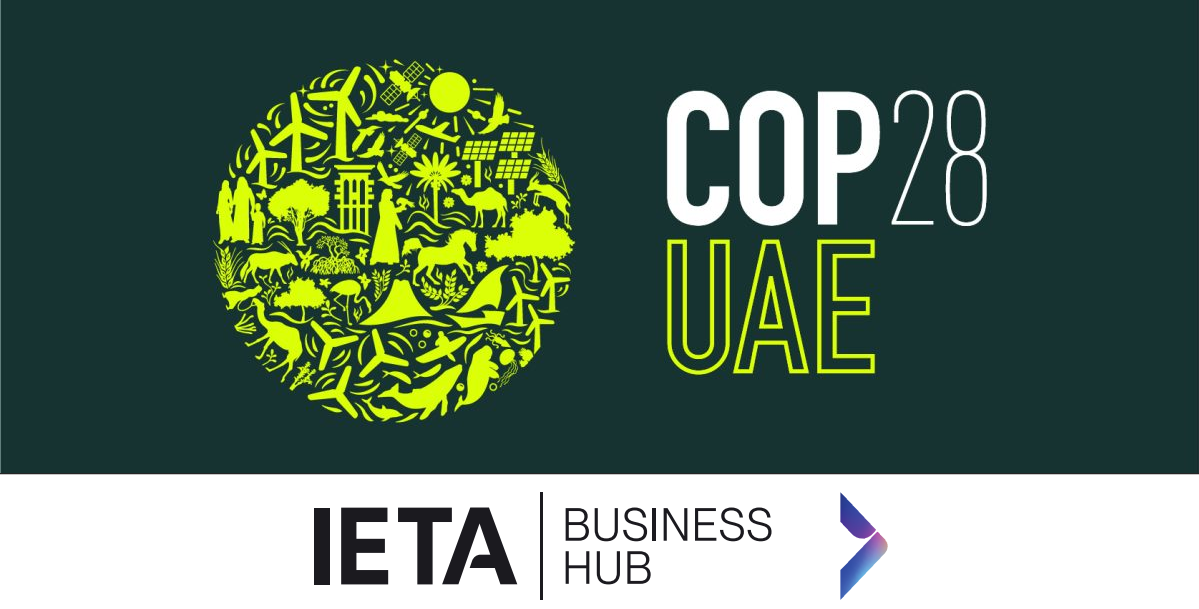COP28 update: Day 11, 11 December

Monday at COP28 was for the most part frustratingly quiet unless you were one of the delegates inside the negotiating rooms. With the side events schedule at the IETA Business Hub completed, and the walkways of Expo City increasingly empty, there was little to occupy observers.
At Sunday’s Majlis session we heard expressions of a wide range of ambition as well as some outright resistance. Saudi Arabia continued to hold the line against a phase-out of fossil fuels, noting that there was a growing focus on specific energy sources rather than on their emissions, while Iraq flat-out rejected any references to a phase-down or phase-out.
At the same time, a small group of countries in the Beyond Oil & Gas Alliance, supported by a vocal cross-section of other Parties and NGOs, kept up the public pressure to keep references to a fossil fuel phase-out (referred to by many as FFPO).
Other Majlis interventions highlighted the need for financial commitments across a wide variety of platforms to be met, for increased ambition vis-s-vis the 1.5–2°C target, a just transition, and there were also a few reminders of the principle of common but differentiated responsibilities.
Monday saw the talks on the Global Stocktake retreat into closed consultations, and there was precious little news until fairly late in the day, when a draft text emerged that had removed any reference to FFPO (see below).
The uproar was almost immediate. The Alliance of Small Island States said the “weak language” on fossil fuels was “completely insufficient”. “It doesn’t refer to a phase-out at all. Any text that compromises 1.5°C will be rejected.” The Least Developed Country group said it could not accept the text either.
The EU’s Teresa Ribeira called it “disappointing and unacceptable”, while Ireland’s Eamonn Ryan, who’s leading the EU ministerial team here, said the EU would walk away if the draft COP28 deal is not changed. The U.S.’ John Kerry said “the mitigation section, including the issue of fossil fuels, needs to be substantially strengthened, and the finance section contains inaccuracies that must be fixed.”
Criticism of the text came from outside the COP compound as well. Former U.S. vice president Al Gore called it an “obsequious draft” that “reads as if OPEC dictated it word for word.”
Meanwhile, COP President Sultan Al-Jaber continued to bang the drum for “the highest possible ambition” and told Parties that this “included the fossil fuel language”.
Heads of delegations were due to meet in the evening for a closed-door session to work on compromise solutions.
And with this turmoil in the background, the first part of the closing plenary whistled through those relatively procedural, administrative or uncontentious decisions that it could deal with quickly, clearing the decks for the likely drama to come.
One of these was the decision document relating to the Clean Development Mechanism. The text noted that as of Dec. 10, the CDM had “7,840 project activities registered, 353 programmes of activities registered and more than 2.42 billion certified emission reductions issued, of which more than 389 million had been voluntarily cancelled either in national registries or in the CDM registry.”
The CMP decided to continue to work on how to wind down the CDM at the next COP, “with a view to avoiding a gap before the operationalization of the corresponding processes under the mechanism established by Article 6, paragraph 4, of the Paris Agreement”. CMP also decided to shift funds from the CDM Trust to the Adaptation Fund, once it has received advice on how much the CDM will need to continue its functions as required.
Article 6
Many Parties stayed up all Sunday night/Monday morning trying to negotiate and find bridges around the final difficult elements of Article 6.2. We heard that many negotiators eventually left at around 0400-0500, before coming back to the venue only a few hours later to continue negotiations on Article 6.4.
The lack of sleep may have impacted the Article 6.4 room, which at first seemed to be moving closer towards some consensus, but. later during the day the room seemed to be diverging even further.
After an initial consultation between 1100-1300, an updated draft text was published with the intention to conclude negotiations in the evening. However, a few Parties were still deeply uncomfortable with the text and, after being given more time due to other negotiation items (GST) not moving forward as quickly as planned, co-facilitators will now likely have to produce another version of the text.
One of the main sticking points has been whether to “adopt”, “provisionally adopt”, “welcome” or “acknowledge” and “further elaborate” the recommendations produced by the Article 6.4 Supervisory Body on methodological requirements and removal activities.
Whilst some Parties are pushing for the full adoption and operationalisation of both documents, other Parties (such as the EU) are willing to adopt the methodologies recommendations but not the removals ones, and many others seem unwilling to adopt either in their current form.
In addition to this complexity is the linkage to the Article 6.2 text, specifically the section on authorisation and the interoperability of registries, which we are told is in an even worse shape, and which are seen by many Parties as a package (potentially also including Article 6.8).
Negotiators were finally informed that there will be no further meetings before 1000 tomorrow, so while the high-level ministerial discussions on the GST continued, IETA’s Article 6 team and their friends in the delegations headed home to get at least a little bit of rest before the official end tomorrow.